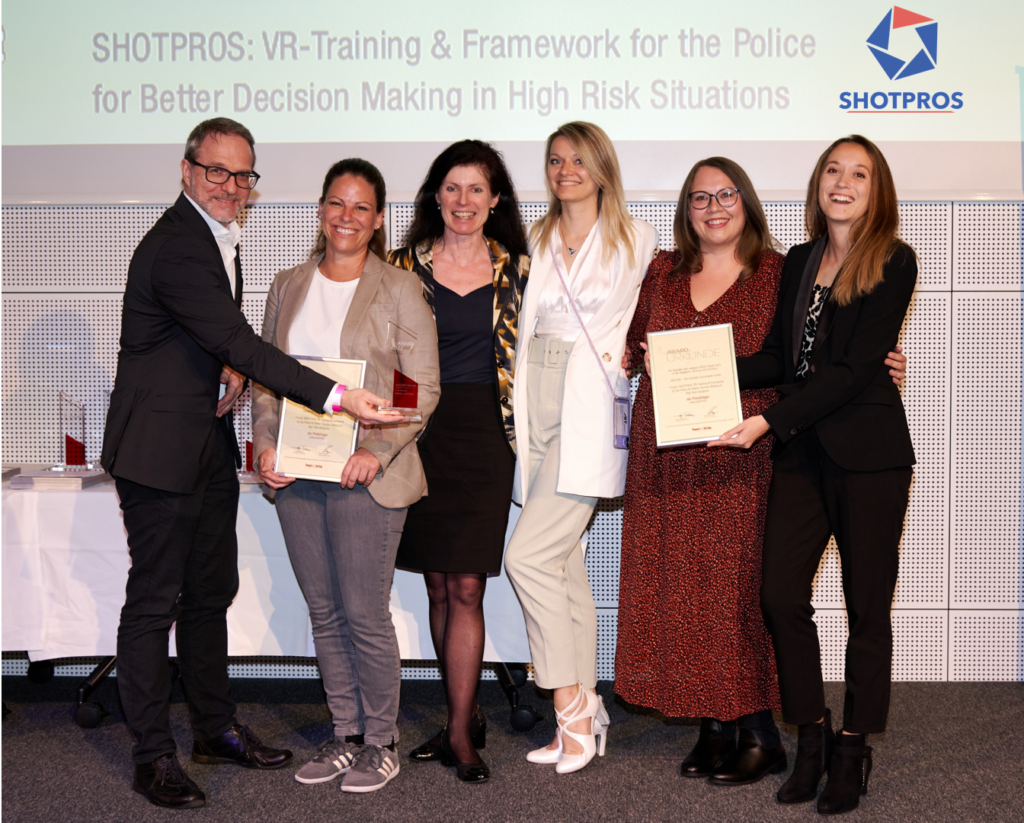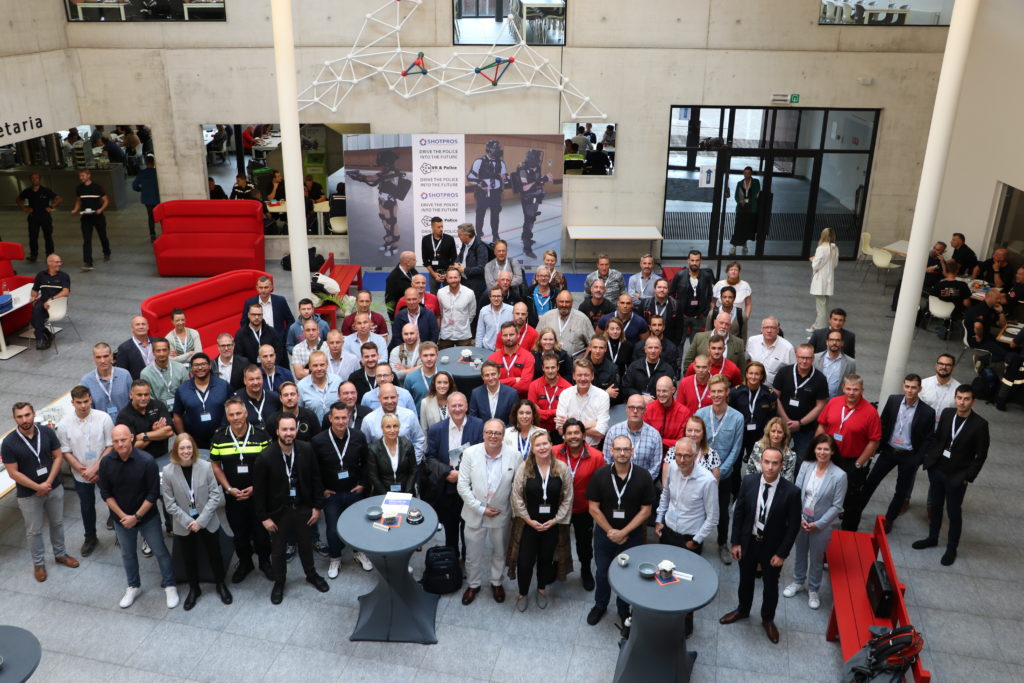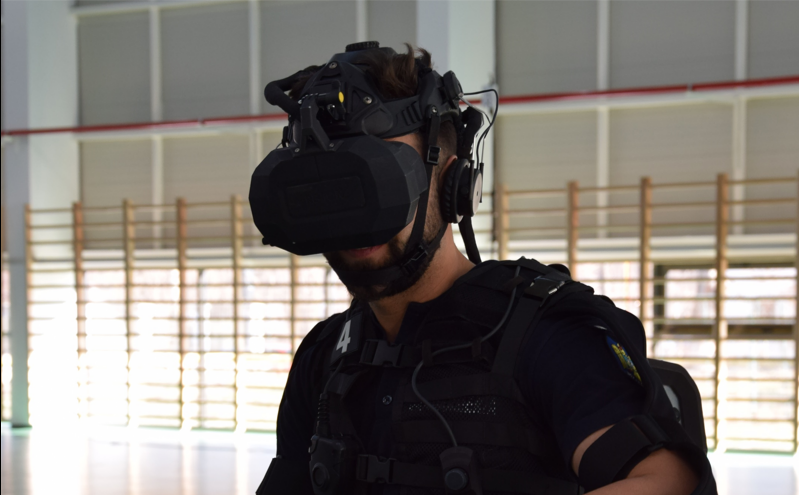News & Events
Study Results: The impact of the COVID-19 pandemic on European police officers: Stress, demands, and coping resources

02.12.2020
The COVID-19 pandemic is a global and long-lasting challenge for European police officers. The constant risk of infection and dynamic governmental measures are just a few examples of potential stressors that have arisen from the pandemic. Nearly 8 months after the first lockdown, European countries now struggle to fight the second wave and again impose harsh restrictions. The international study “SHOT-COVID19” investigated the work demands, dynamics and stress levels of European police officers during the COVID-19 pandemic – with interesting results and recommendations for police authorities from the first lockdown.
The SHOTPROS project aims to improve first responders’ decision making and acting capabilities under stress and in high risk situations by developing an innovative training solution. Together with the other project partners, the team of University Heidelberg successfully conducted the SHOT-COVID19 study in Spring 2020. The excellent collaboration of all project partners facilitated the participation of over 2,500 police officers from 5 European countries (Austria, Germany, Switzerland, the Netherlands and Spain).
Background and research questions of the SHOT-COVID19 study
The current COVID-19 pandemic has created novel and uncertain situations in which police officers have to act appropriately. Compared to other critical but time-limited police operations (e.g., terrorist attacks), the pandemic depicts a global and long-lasting threat. As a result, police officers are confronted with a wide variety of new work demands that might put strain on them. However, it is the police core competency to respond to novel and uncertain situations. Therefore, police and its officers should be equipped with various coping strategies that prepare them for stressful situations. Their effectiveness determines the stress severity.
“In-depth knowledge of pandemic-specific stressors and coping strategies in the police is the key to enable effective crisis management“, argues Dr. Marie Ottilie Frenkel from Heidelberg University.
Therefore, the study focused on perceived stress levels and individual, organizational, and governmental coping strategies. The participating officers were asked how effective they perceive these strategies and what shortcomings they noticed. The results provide interesting insights into the pandemic-related challenges in the police and recommendations for action can be derived to cope with the second COVID-19 wave.
New findings and recommendations for action
An average police officer (male, 17 years work experience) had a medium level of stress at the time of the first lockdown, which has decreased slightly over the 3-month survey period. This result shows that the majority of participants were able to cope with the pandemic and the associated demands very well. However, observed stress levels varied greatly among officers, putting some at risk to experience severe levels of stress. Gender, little work experience, the feeling of being unprepared, maladaptive emotion regulation strategies, and a general assessment of the pandemic as stressful were identified as risk factors for high stress levels.
The study found that risk of infection and poor communication were the main stressors of the police officers surveyed in the pandemic. Therefore, the government needs a clear legal framework that contributes to an increase in public compliance through effective media communication. Police authorities should bundle information at a higher level and make specific instructions for the relevant target groups available in the form of daily newsletters or FAQ pages. Superiors can systematically remind of the skills learned in the training, in particular for coping with stress and self-protection, in order to strengthen the self-efficacy of the police forces.These measures could reduce the perceived stress of the police officers and significantly improve crisis management.
The study has already been peer-reviewed and is currently in press. Find the study online in the Journal of Criminal Justice
Frenkel, M.O., Giessing, L., Egger-Lampl, S., Hutter, V., Oudejans, R., Kleygrewe, L., Jaspaert, E., & Plessner H., (2020). The impact of the COVID-19 pandemic on European police officers: Stress, demands, and coping resources. Journal of Criminal Justice, 101756. https://doi.org/10.1016/j.jcrimjus.2020.101756
Discover more News & Events

SHOTPROS received the eAward – the Austrian business prize for digitalisation projects
The SHOTPROS project received the eAward, the most important business prize for digitalization in Austria.

Review of the SHOTPROS Final Conference
The SHOTPROS final conference was a big success. Get informed about the speeches at the conference about the project results.

SHOTPROS Innovations Video
SHOTPROS innvoations and results are presented in this video clip. Get informed about the VR police training of the future.

Policy-maker Toolkit
The policy-maker toolkit provides strategies and executive summaries for policy-makers in the field of law enforcement training
